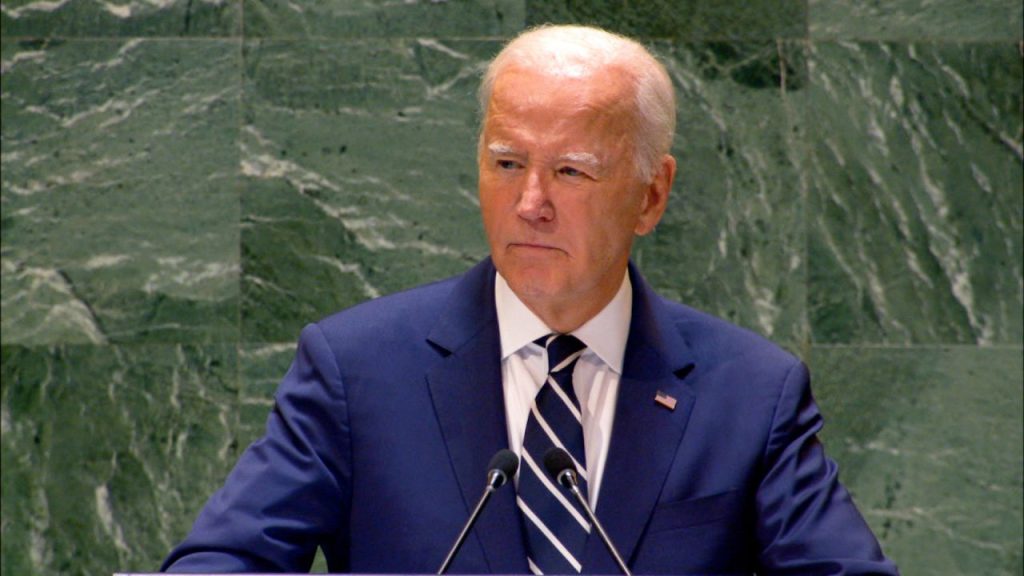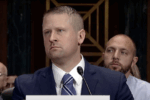Washington, D.C. — President Joe Biden is set to deliver a pivotal speech at the State Department on Monday, reflecting on his foreign policy achievements over the last four years. This address, billed as a “capstone” to his tenure, comes as President-elect Donald Trump prepares to take office with a radically different vision for U.S. foreign relations.
Biden’s speech will highlight key accomplishments that have defined his administration, including the expansion of NATO, unwavering support for Ukraine amidst its ongoing conflict with Russia, and a historic agreement fostering economic and security cooperation between Japan and South Korea. This moment will serve as Biden’s opportunity to outline his legacy before stepping down and leaving the White House to a leader with starkly contrasting foreign policy objectives.
Biden’s Foreign Policy Milestones
Since taking office, President Biden has championed multilateralism and sought to restore the United States’ position as a global leader. At the heart of his foreign policy is a commitment to alliances and partnerships.
One of Biden’s notable achievements is the expansion of NATO, a significant move that strengthened the alliance amid growing tensions with Russia. This effort demonstrated Biden’s belief in the importance of collective defense and international collaboration.
In addition, Biden’s administration has been a steadfast supporter of Ukraine. The U.S. rallied dozens of allies to provide military and humanitarian aid to Ukraine, which has been embroiled in a protracted war against Russian aggression. Biden’s approach has emphasized global solidarity in defending sovereignty and democracy.
Another major success for Biden’s administration was the historic agreement between Japan and South Korea. This deal marked a turning point in strengthening security and economic cooperation in the Asia-Pacific region. The partnership helped resolve long-standing disputes between the two nations and positioned them as key allies in countering regional threats, including North Korea and China.
Biden’s foreign policy also emphasized climate diplomacy, re-engaging the United States in global efforts to combat climate change through the Paris Agreement and collaborative initiatives with other nations to reduce greenhouse gas emissions.
Trump’s Vision: A Radical Shift
President-elect Donald Trump, known for his “America First” approach during his previous term, is poised to bring a dramatically different foreign policy agenda. Trump has outlined bold—and often controversial—proposals that prioritize U.S. interests above global collaboration.
Among his notable plans, Trump has proposed renaming the Gulf of Mexico as the “Gulf of America,” a symbolic move that aligns with his nationalist agenda. He has also expressed interest in asserting U.S. control over strategically significant locations such as Greenland and the Panama Canal. Trump has hinted at the possibility of using military force to secure these regions, arguing that their control is vital to American national security.
Additionally, Trump has called on NATO members to increase their defense spending significantly, pushing for a contribution of 5% of GDP from each member nation. This demand aligns with Trump’s criticism of the alliance, which he has previously called “obsolete,” and his broader view that the U.S. bears an unfair burden in global security efforts.
Trump has also voiced skepticism about continued U.S. support for Ukraine, citing the financial cost of military aid. His administration is expected to reevaluate America’s role in the conflict, potentially altering the dynamic of international support for Ukraine.
Moreover, Trump has made clear his opposition to renewable energy initiatives, promising to reverse Biden’s ban on offshore drilling and to expand fossil fuel production. These moves are likely to draw criticism from environmental advocates and international partners committed to combating climate change.
Transition of Power and Its Implications
The transition from Biden’s multilateral approach to Trump’s nationalist agenda signals a significant shift in U.S. foreign policy. Biden’s efforts to strengthen alliances and champion democratic values globally may face reversals under Trump’s administration, which is likely to prioritize economic and strategic advantages for the United States over international collaboration.
While Trump’s policies aim to reassert American dominance, they could lead to increased tensions with traditional allies. His emphasis on tariffs, military threats, and unilateral actions may strain relationships with partner nations and reshape the United States’ role on the global stage.
Experts have expressed concern over how these policy changes could impact international stability. Biden’s foreign policy emphasized predictability and partnership, whereas Trump’s approach is often seen as transactional and unpredictable. The potential for increased isolationism under Trump could diminish U.S. influence in critical regions and embolden adversaries.
Looking Ahead
As President Biden delivers his farewell address, the nation stands at a crossroads in its foreign policy journey. His speech will not only commemorate his administration’s achievements but also serve as a reminder of the challenges that lie ahead. The global community will be closely watching the transition to Trump’s leadership and the implications of his policies on international relations.
While Biden’s legacy is defined by his commitment to alliances and diplomacy, Trump’s return marks the beginning of a new era—one that could redefine America’s role in the world for years to come.
Disclaimer – Our editorial team has thoroughly fact-checked this article to ensure its accuracy and eliminate any potential misinformation. We are dedicated to upholding the highest standards of integrity in our content.





More Stories
Trump’s Radical Foreign Policy Plans: What the Future Holds for U.S. Diplomacy
Trump’s Radical Foreign Policy Plans: What the Future Holds for U.S. Diplomacy
Trump’s Radical Foreign Policy Plans: What the Future Holds for U.S. Diplomacy